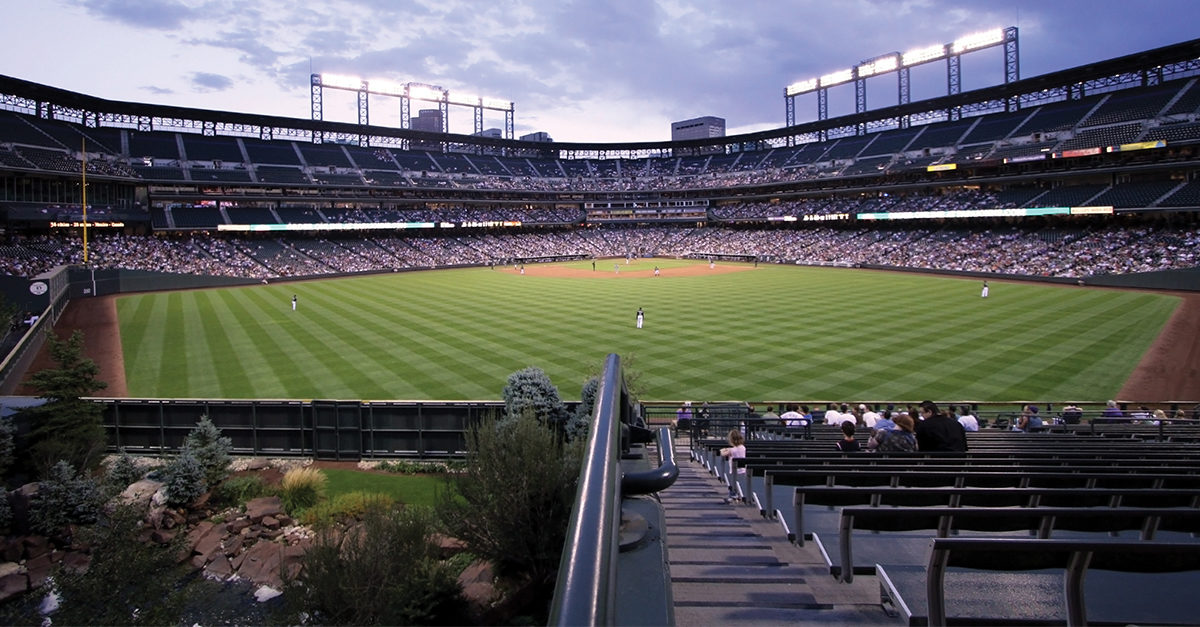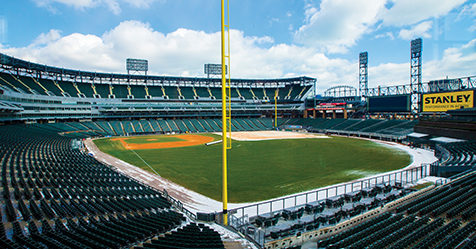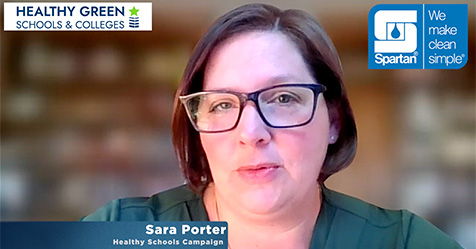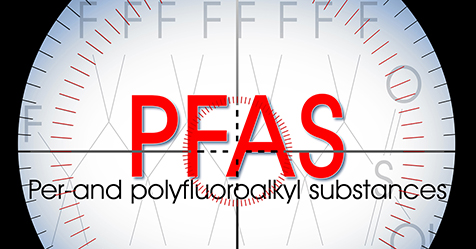Stadiums, arenas, and sports venues come in many sizes. Cleaning and maintaining these types of facilities is not a job that can be approached haphazardly, and demands planning, preparation, communication, coordination, and the ability to quickly adapt. The concepts outlined here are the same regardless of the size of the facility.
Primary factors impacting cleaning:
- Type of event
- Attendance
- Set-up and tear down requirements
- Cleaning shifts
- Weather.
Break down of shifts:
- Pre-event cleaning
- Event cleaning
- Post event cleaning
- Next event scheduling.
Staffing Assignments
When creating a bid or planning to take on a new facility, overstaff your estimate by 40 percent. Consider using contracted labor, temporary employees, and part-time workers who can be dismissed if you don’t need them.
Assign teams to specific areas according to their task. Cleaning positions include:
- Pickers: They pick up large debris in the sports bowl or seating area.
- Blowers: They clean up smaller debris using air-blowers while moving downward toward the main floor.
- Sweepers: They use brooms to sweep across the rows of seating and then down the stairs to the main floor; they should bag as they go if the pile gets too big.
- Pressure washers: They clean surfaces such as concrete, rubber, plastic, and stairwells in areas with appropriate drainage.
- Restroom team: This team is responsible for cleaning and stocking the public restrooms. These are critical areas that will generate complaints if workers do not properly clean and stock them.
- Trash team: This team is responsible for the collecting, bagging, and disposal of trash, cardboard, and other recycled materials.
- Suite crew: This team is responsible for suites, boxes and offices, etc.
Staffing Numbers
Facility sizes and attendance levels will affect the amount of cleaning staff you need. The most common staff numbers for particular facility sizes are:
- 5–7 people: 0–1,000 attendees
- 10–15 people: 1,001–5,000 attendees
- 15 people: 5,001–10,000 attendees
- 20 people: 10,001–20,000 attendees
- 30 people: 20,001–40,000 attendees
- 45–60 people: 40,001–65,000 attendees.
Once your numbers grow to more than 70,000 attendees, you should hire two additional people for every 5,000 building occupants.
Here are some other staffing tips to consider for different types of areas and scenarios:
Outdoor seating areas: These normally require approximately 30 percent fewer staff due to assistance from using water hose/pressure washers.
- Restrooms: Set up restroom cleaners in teams of two with one restroom cart. A restroom with 6–12 stalls should take 15 minutes to clean; a restroom with 20 stalls should take 25 minutes to clean.
- Suites: Suites may require one working lead, two vacuum positions, and four cleaners.
- Concourses and walkways: These will require staff to take care of trash, dusting, and damp mopping; depending on the size of the facility, you may want to allow eight working hours to clean each level.
- Time frame: On the last night of any event, expect the event to run 30 to 60 minutes late. Keep your options open; don’t guarantee employees a set number of hours, because changes may arise.
Bidding and Costs
One tip: Avoid including the cost of expendable supplies (paper, plastic, hand soap, etc.) in your price as these numbers are difficult to validate and can vary widely in each facility.
Here are some examples of how particular contractors staff and price:
- A Pennsylvania-based building service contractor (BSC) receives a set fee of US$7,500 for up to 12,000 attendees and 15 cents per person (or $150 per thousand) for attendance above the base rate. It uses 15 trash pickers in the bowl area, which seats 18,000 attendees. It staffs 45 cleaners for 12,000 people and adds one cleaner for every additional 500 seats sold. Therefore, the desired full staffing level for a game with 20,000 in attendance would be 61 cleaning staff. Twelve workers clean 125 boxes/suites in eight hours; each box is about 400 square feet. The contractor receives a flat rate of $8 per box or suite the stadium uses. They use 500 trash liners per game with 18,000 attendees.
- In Atlanta, GA, a BSC has a cost plus with a cap-type contract. It spends about $16,000 per game excluding paper supplies. In the off season, cleaning costs about $18,000 per month. This stadium seats more than 50,000 people and has 185,000 square feet of office space that requires cleaning five days per week year round. The contractor adds a 9 percent profit and 7 percent overhead fee to all costs. During the off season, it keeps a permanent staff of 20 people for offices, detail work, and windows. It uses eight to 10 trash bags per seating section of 400 seats. The facility uses about $100,000 per year in paper and soap products, or about 2.5 cents per attendee per event.
As you can see, there are a number of different ways contractors calculate cleaning costs in sports facilities. In most cases, they do not bid by the square foot as they would in other facilities, although certain tasks, such as floor care, carpet care, and cleaning office or suite areas may be bid by the square foot.




